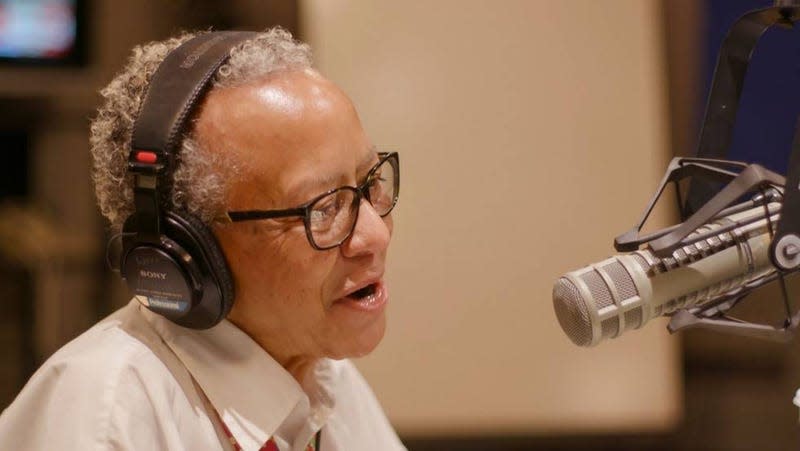‘Going to Mars’ Documentary Celebrates an Older, Wiser, But Still Defiant Nikki Giovanni

- Oops!Something went wrong.Please try again later.
When chronicling the legacy of Nikki Giovanni, you can’t deliver a traditional documentary. HBO’s new film “Going to Mars: The Nikki Giovanni Project” is anything but traditional.
Filmmakers Joe Brewster and Michèle Stephenson knew that bringing the famed poet’s story and art to life would be one of their most challenging projects. Over the course of seven years, they spent time documenting the award-winning author and activist’s life. Brewster and Stephenson spoke to The Root about how they approached properly honoring her influence and art.
As they began the arduous process of deciding which of Giovanni’s poems to include in the film, they noticed that the writer’s love of space was a constant theme, so her poem “Going to Mars” became the “scaffolding to lay everything else around.” They used it as a framing device for the present day moments of Giovanni with her grandchild, archival footage of her with James Baldwin and clips of her at readings and meet and greets.
With everything feeling like an essential piece of the puzzle, the decision of where to start led to some “nervousness for the directors.”
“How could we push our craft to match, and do justice to her work and the impact that it has? We wanted to explore how the filmmaking, storytelling part could really be a reflection in homage to her work,” Stephenson told The Root. “That’s where we spend a lot of time working and reworking things in the storytelling process so we wouldn’t be this conventional piece because she’s anything but conventional. We wanted the work to reflect her spirit.”
The film wholeheartedly embraces its unconventional format: Brewster and Stephenson describing the various elements of the documentary as the stanzas of a poem. Each aspect of Giovanni’s story is treated like a different part of the overall poem, with “Going to Mars” as the foundation for the entire piece.
“There was the ‘Going to Mars’ framing that would be in conversation with certain elements and other poems that were going to be elements of the Black experience, Black joy and Black love,” Stephenson said. “Everything else was going to be some kind of element that we would hope would build, not just on her personality, but be a commentary on this society.”
The filmmakers revealed that Giovanni didn’t interfere with their process or offer guidance on what she wanted. This can be seen in the way the documentary doesn’t shy away from showing the effects of the 80-year-old poet’s multiple health issues, including her loss of memory.
While archival footage, especially the conversation with James Baldwin, helps the audience understand how she became the artist she is, the present day clips of her with her family show her as a real person, not a legendary figure — she’s an influential artist, but she’s also a mother and a grandmother. The film offers a glimpse into these other sides of her life. Despite the looming shadow of her health battles, the documentary ends on an optimistic note with her reading “Going to Mars” and inspiring a new generation about what they should expect and demand from the world.
“We end up in a healing space,” Stephenson said. “Whether it’s the centrality of intergenerational dialogue. Whether it be between Nikki and James Baldwin, or Nikki and her grandchild being in the garden, or the scene that is an intergenerational celebration of Black women, Black female excellence, but also just joy. We always center that, knowing that we’re not shying away from what’s difficult, but somehow that difficulty brings us somewhere where healing can happen.”
“Going to Mars: The Nikki Giovanni Project” premieres Monday, Jan. 8 at 9 p.m. on HBO. Following its debut, it will be available to stream on Max.

